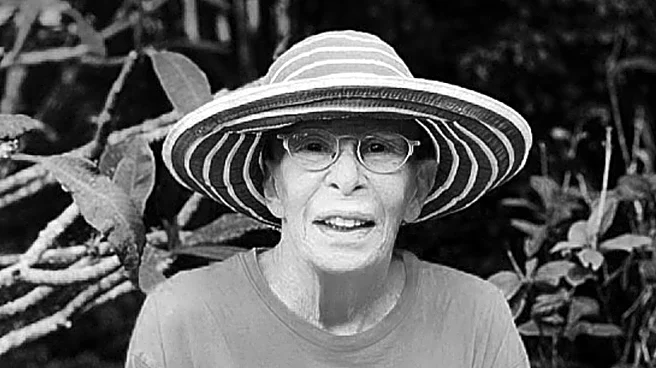What's Happening?
Jane Goodall, the esteemed primatologist known for her groundbreaking research on chimpanzees, has died at the age of 91. The Jane Goodall Institute announced her passing, stating she died of natural causes while on a speaking tour in California. Goodall's work began in 1960 in Tanzania, where she studied chimpanzees and made significant discoveries about their behavior, challenging existing beliefs about primates. Her research demonstrated the use of tools by chimpanzees and their complex social behaviors. Goodall founded the Jane Goodall Institute in 1977, which focuses on conservation and youth education projects.
Why It's Important?
Jane Goodall's contributions to science and conservation have had a profound impact on our understanding of primates and the natural world. Her work has influenced environmental policies and inspired generations of conservationists. Goodall's advocacy for animal rights and environmental protection has been recognized globally, and her legacy continues through the initiatives of the Jane Goodall Institute. Her passing marks the end of an era in primatology, but her influence persists in ongoing conservation efforts and educational programs aimed at preserving biodiversity and promoting sustainable practices.
Beyond the Headlines
Goodall's life and work highlight the intersection of science and activism. Her approach to conservation emphasized the importance of community involvement and education, setting a precedent for modern conservation strategies. Her legacy includes the Roots and Shoots program, which engages young people in environmental projects worldwide. Goodall's story also underscores the challenges faced by women in science, as she overcame significant barriers to pursue her research. Her dedication to conservation and her ability to communicate complex scientific ideas to the public have made her a beloved figure in both scientific and popular circles.










